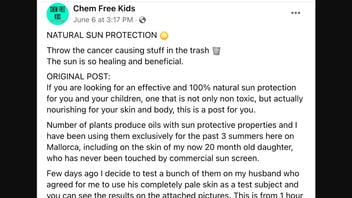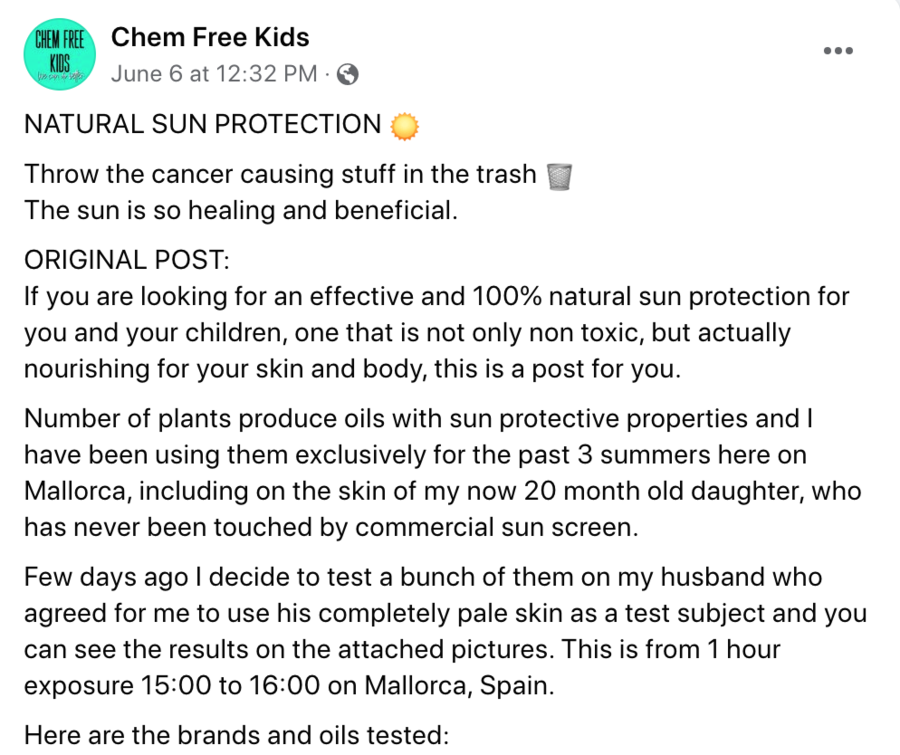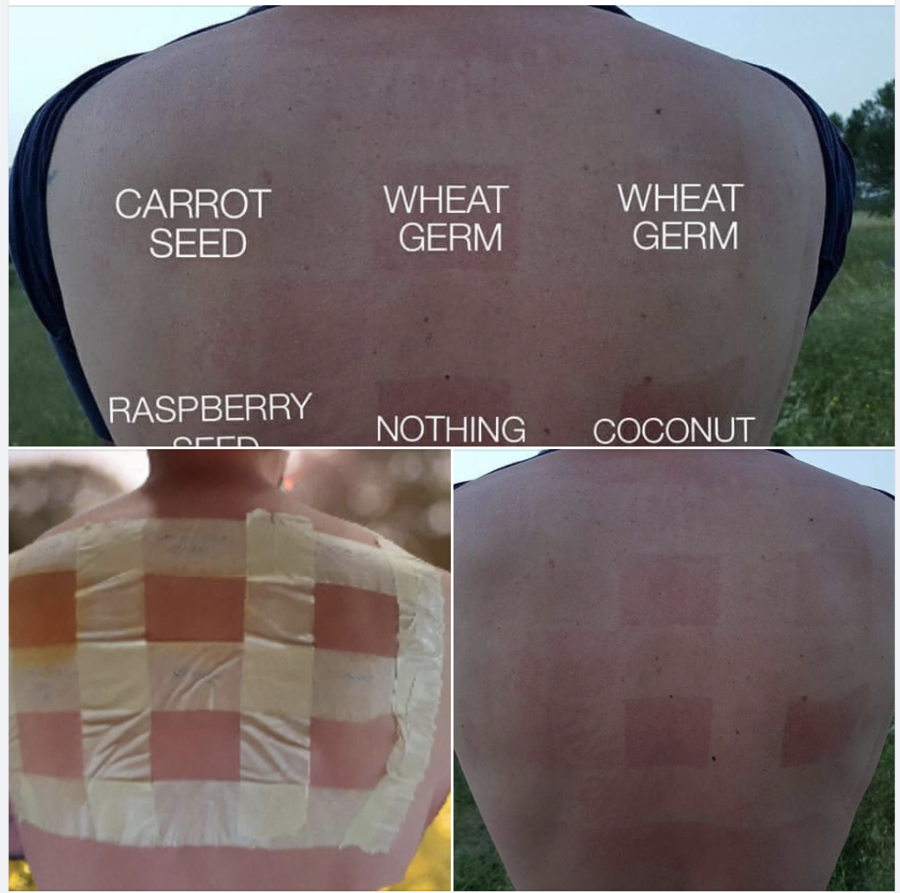
Do plants produce oils that provide effective natural sun protection and do sunscreens cause cancer? No, neither is true: "There is no evidence that they afford even close to adequate protection," board-certified dermatologist Julie K. Karen, M.D., told Lead Stories. Sunscreens do not cause cancer and "have been shown to substantially reduce UV-induced damage and skin cancer," she said.
The claim appeared in a Facebook post published on June 6, 2022. It opens:
NATURAL SUN PROTECTIONThrow the cancer causing stuff in the trashThe sun is so healing and beneficial.
This is what the post looked like on Facebook at the time of writing:
(Source: Facebook screenshot taken on Fri Jun 17 19:51:42 2022 UTC)
The post claimed to have conducted a personal experiment on a person's back with five plant oils compared to bare skin, showing that the oils provided sun protection. The post said the photo showed the before-and-after photos "from 1 hour exposure 15:00 to 16:00 on Mallorca, Spain":
Here are the brands and oils tested:
- Carrot oil - Fushi 100ml - 9.65GBP (edited to correct that I in fact used Carrot Oil and not Carrot Seed oil, My apologies for the mistake)
- Organic Wheatgerm Oil - Naissance Convive 500ml - 16.99GBP
- Wheatgerm Oil - Belenos Therapy 100ml 8 GBP
- Raspberry Seed Oil Cold Pressed - Naissance 100ml - 9.99GBP
- Nothing - bare skin
- Coconut Oil Bio - Natursoy 200g - 7 Euros
(Source: Facebook screenshot taken on Fri Jun 17 20:23:11 2022 UTC)
Dermatologist Ranella Hirsch, M.D., said the claims that natural plant oils provided better sun protection for the skin than sunscreens were false. "They are not better and are demonstrably worse," she told Lead Stories via email on June 9, 2022. She said the oils do not help protect the skin from sunburns.
Hirsch cited a study published in 2021 titled, "The real UVB photoprotective efficacy of vegetable oils: in vitro and in vivo studies." She said:
In essence, they reviewed some of the older citations which suggested (inaccurately) potential sun protective benefits. Testing with proper standards elucidates otherwise.
Karen told Lead Stories via email on June 17, 2022, that the information in the post was "inflammatory and riddled with false information and if taken at face value will lead to dangerous behavior." Sunscreens do not cause skin cancer, and while imperfect, have been shown "substantially reduced UV-induced damage and skin cancer. Decades of use have proven them safe and effective and to date, they have never once been proven to cause cancer."
She noted that there are benefits to several of the oils and the antioxidants have been "proven to neutralize free radicals that are induced by UV irradiation, thereby reducing UV-induced damage (and preventing the damaging cascade of reactions that lead to skin cancer and photo damage)." However, she warned they do not confer adequate UV protection to obviate the need for sunscreen:
While there are some health benefits to these natural oils, they have not been formally studied and there is no evidence that they afford even close to adequate protection and individuals should be wary of individual and incendiary claims such as those contained in this post.
Rather, they are best utilized as an adjunct, as antioxidants synergize with sunscreen to afford extra protection.
Moreover, some of these oils can lead to irritation or even allergy when applied topically to the skin and should be tested on the skin before being applied to large areas.Bottom line is sunscreens are safe and effective. They should be applied regularly and liberally and should be one component of sun protective/sun smart behavior, including sun protective clothing, seeking the shade, hats and sunglasses.
Healthline.com published an article that reported carrot seed oil nor carrot oil are effective sunscreens:
Carrot seed oil does have health benefits, but protection from the sun is not one of them. Like carrot oil, carrot seed oil has no known SPF, and should not be used as a sunscreen.
It also published an article titled on red raspberry seed oil:
But while red raspberry seed oil does offer some UV protection, the protection is not enough to protect your skin from sun damage.
It did note red raspberry seed oil could be used with sunscreen:
Even though red raspberry seed oil doesn't offer enough protection from the sun's harmful UV rays and skin cancer, you can use the oil along with sunscreen. Apply red raspberry seed oil underneath your sunscreen for added moisture to your sun protection.




















